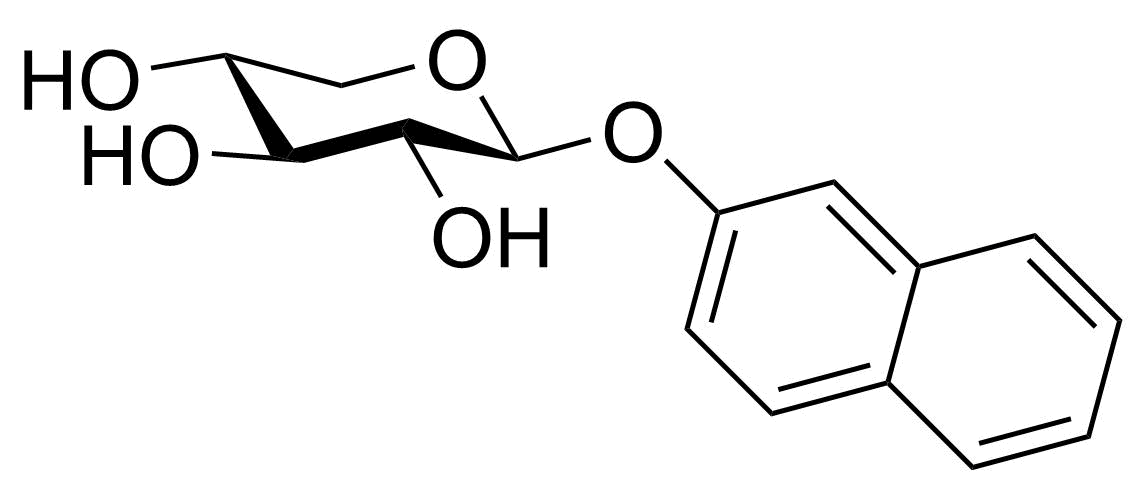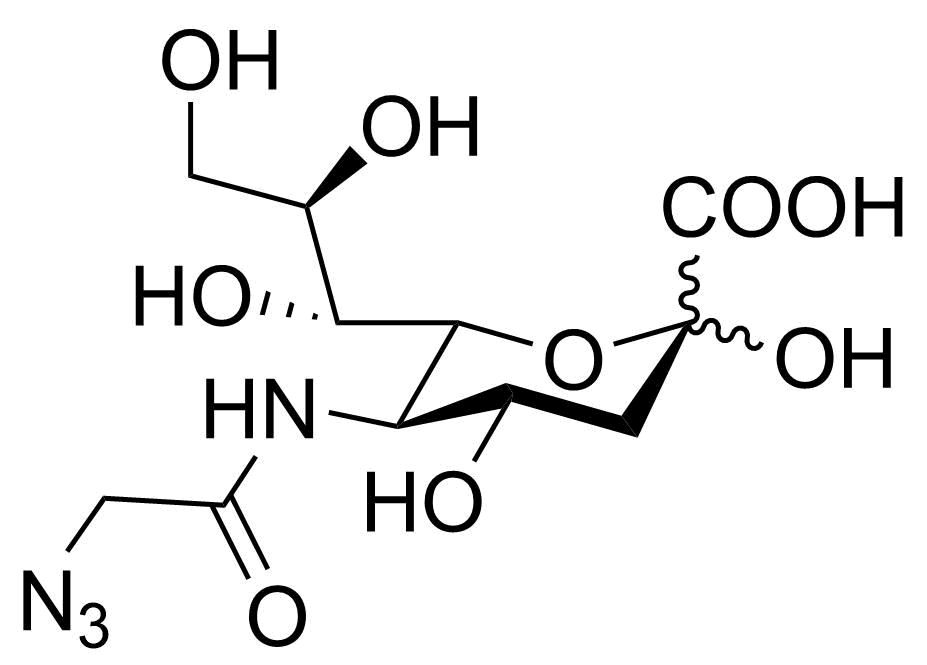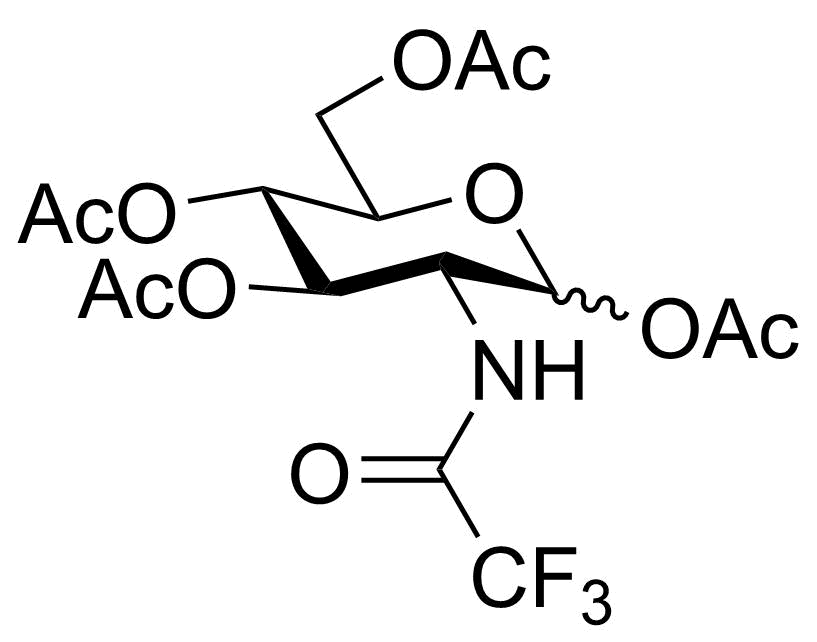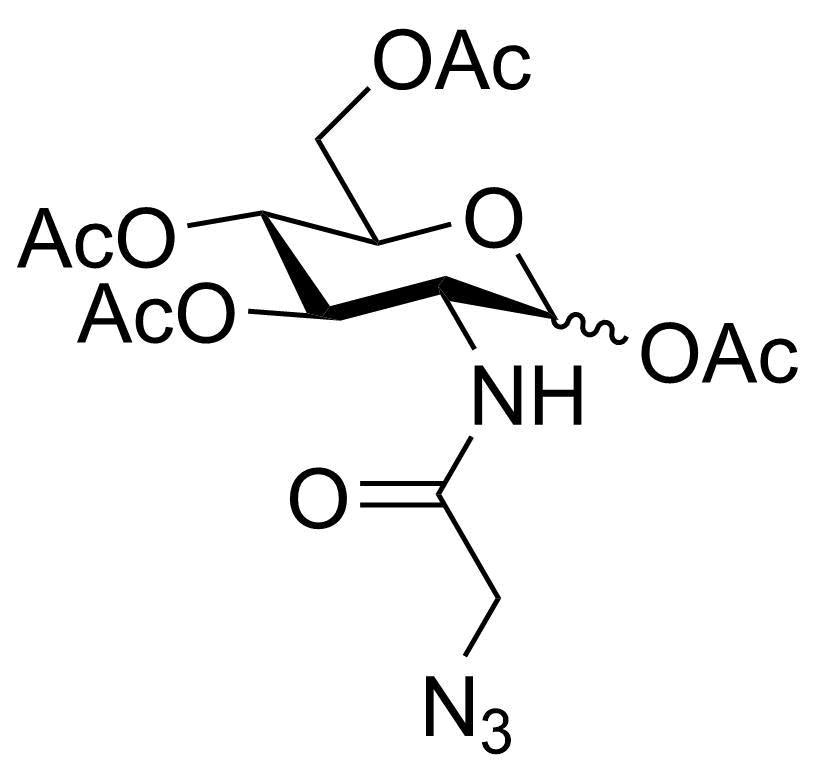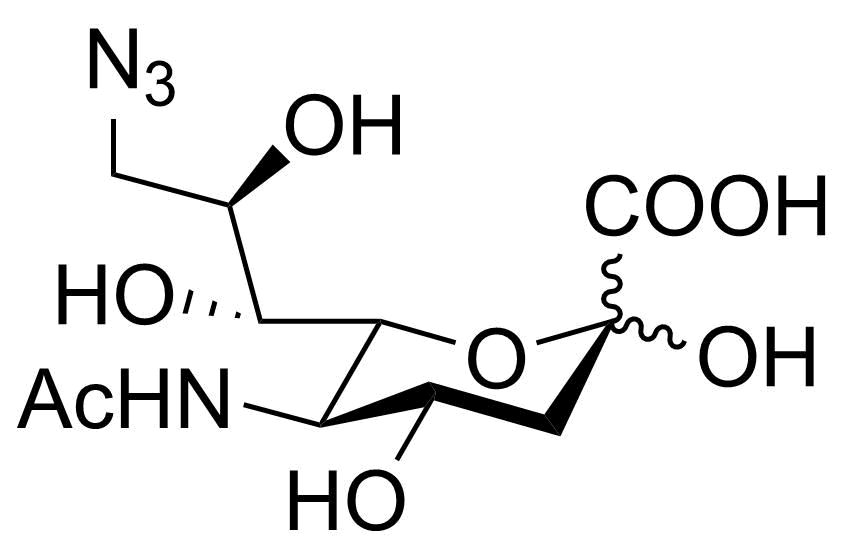Neu5NPoc
Metabolic label of sialylation for active uptake
| Product ID: | SV2474 |
|---|---|
| Synonyms: | SiaPoc |
| Tags: | Alkyne, Bioorthogonal chemistry, Metabolic label, Neuraminic acid, Neuraminidase, NTHi, Sialic acid, Sialidase |
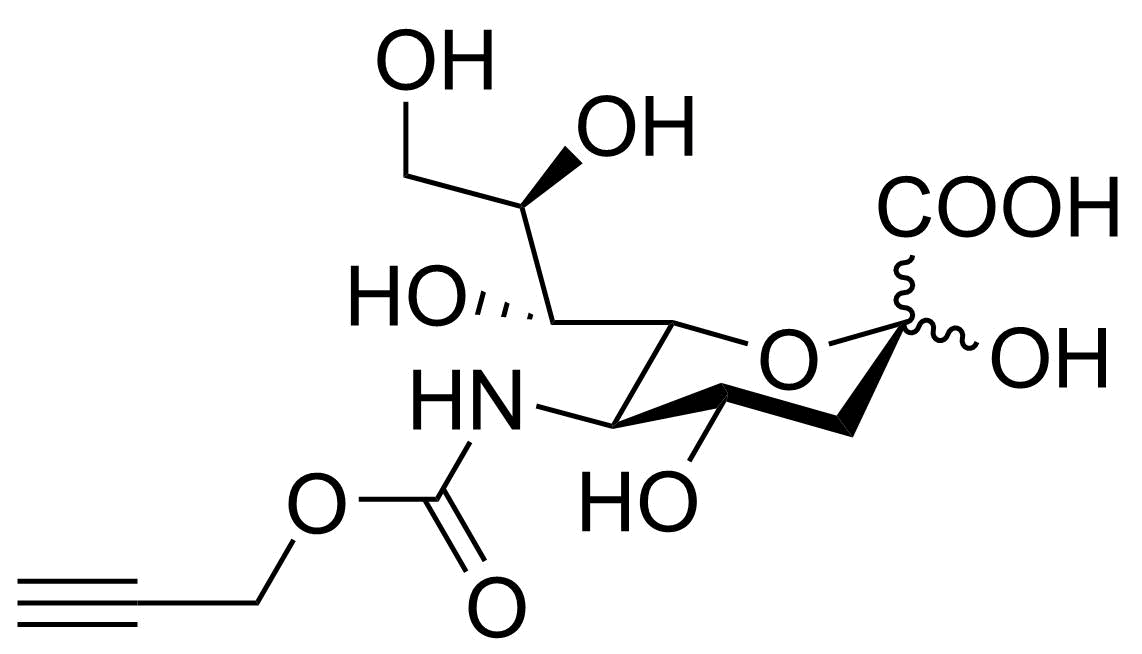
| Product | Price | Estimated Shipping Time | Purchase |
|---|---|---|---|
| Neu5NPoc - 1 mg | €100.00 | 1-3 days | |
| Neu5NPoc - 5 mg | €150.00 | 1-3 days | |
| Neu5NPoc - 10 mg | €250.00 | 1-3 days | |
| Neu5NPoc - 25 mg | €425.00 | 1-3 days | |
| Neu5NPoc - 50 mg | €750.00 | 1-3 days |
Product information
-
Function
Neu5NPoc is a metabolic labeling reagent to probe the sialic acid biosynthesis in cells that express an active sialic acid transport system such as NTHi (non-typeable Haemophilus influenzae).1
-
Mode of action
Neu5NPoc cannot passively diffuse over a cell membrane at µM concentration due to its polar nature. Hence, Neu5NPoc is efficiently taken up in cells that express an active sialic acid transport system such as NTHi (non-typeable Haemophilus influenzae).1 Once taken up, Neu5NPoc is converted into CMP-Neu5NPoc and transferred onto the lipooligosaccharide (LOS) expressed on the cell surface. Neu5NPoc contains an alkyne group for “click” chemistry. Azide reagents can be reacted with the azide group on live and fixed cells. These azides can be modified with an affinity tag or fluorophore for example.
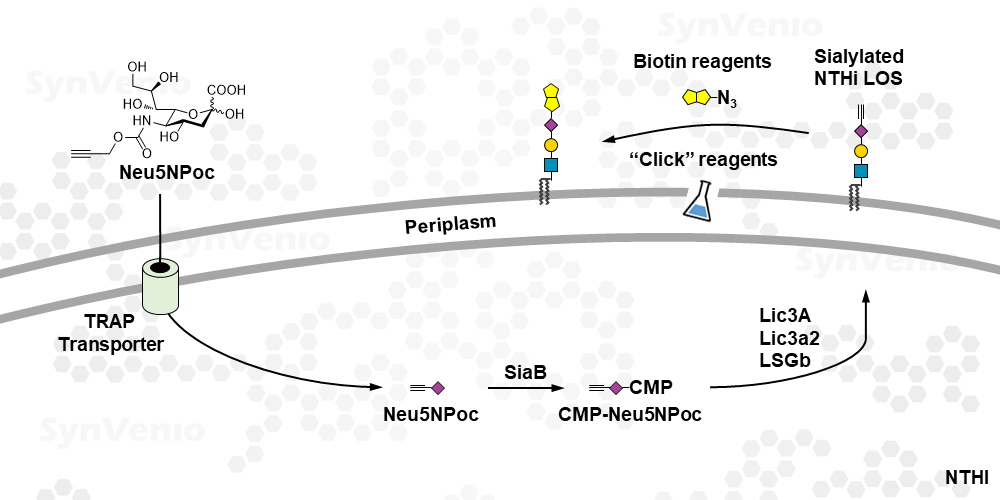
-
Applications
Metabolic labeling of sialoglycans for isolation and visualization.
-
Handling
Neu5NPoc is soluble in water and PBS and is added to cell culture from a stock solution. A click chemistry based competitive assay can be used to measure the extent of cellular sialylation in NTHi using Neu5NPoc. For this purpose, Neu5NPoc and a suitable biotin probe can be used. Please see our click chemistry page for suitable reaction partners.
-
Chemical Information
CAS No.: NA
SMILES: OC1(C(O)=O)C[C@H](O)[C@@H](NC(OCC#C)=O)[C@H]([C@H](O)[C@H](O)CO)O1
Chemical formula: C13H19NO10
Molecular weight: 349.10
Purity: > 95%
Identity: 1H NMR
Shipping temperature: 20°C
Storage temperature: -20°C
Calculator
Dissolve the required mass in your desired stock volume.
Dilute the required volume of your stock solution to the desired final volume.


